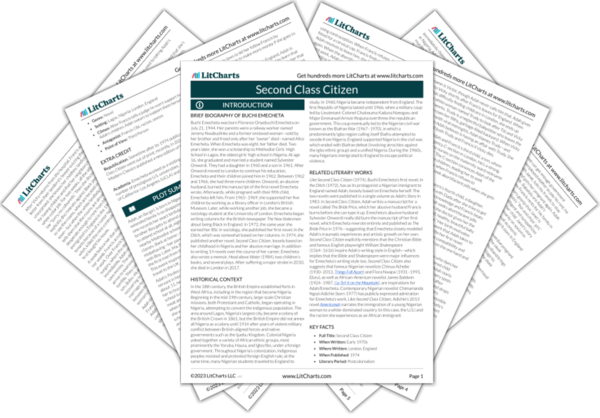The sudden appearance, at the novel’s end, of Adah’s old school friend who calls her “nne nna,” a nickname her Pa gave her, suggests Adah’s inability to shed either her culture of origin or her formative childhood experiences. Yet at the same time, this old friend who represents her childhood and her culture of origin fundamentally misunderstands Adah’s situation, believing that she is still married to her abusive husband. The friend’s misunderstanding suggests that Adah, as a person, is separating herself from her past and her culture even as they remain relevant to her personality, psychology, and life overall.
